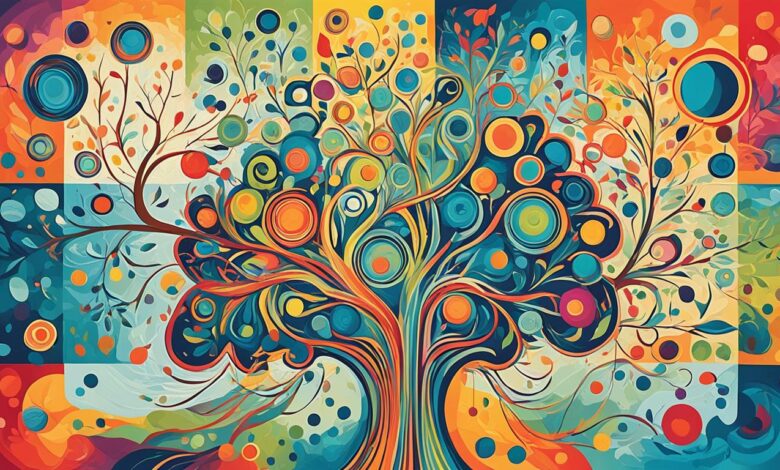Effective Psychosocial Treatments for Alcoholism

Every year, an estimated 15 million people in the United States battle alcohol use disorder (AUD). This highlights the urgent need for effective alcohol addiction therapy. Psychosocial treatments for alcohol use disorder play a key role in fighting this issue. They include approaches like cognitive-behavioral therapy for alcoholism. This method focuses on understanding and changing how we think and act about alcohol.
Community support is critical for recovery. Through group therapy for alcohol addiction, patients not only try to drink less. They also work on staying sober. This creates a strong support network. Understanding the widespread impact of AUD shows us we need both personal care and group support to win this battle.
Understanding Alcohol Use Disorder and Its Impacts
Alcohol Use Disorder (AUD) often hides its dangers behind social norms. It’s a complex condition that needs personalized treatment. Understanding AUD fully means looking at both clinical views and its wider harms.
Defining At-Risk Drinking and Binge Drinking
Knowing what counts as at-risk and binge drinking helps find people who need help. This is key to starting alcohol addiction therapy early. It helps avoid bigger health and society problems later.
Short-Term and Long-Term Goals of Psychosocial Interventions
Early goals for behavioral therapies for AUD focus on getting patients involved and sticking with treatment. Looking ahead, the aim is to improve their social lives and personal happiness. This shows how deep and helpful these treatments can be.
The Controversy of Harm Reduction vs. Abstinence
The choice between reducing harm or stopping drinking entirely is at the heart of treatment debates. Both options fit into the complex care network, meeting the varied needs of those fighting AUD. Personalized treatment plans usually develop from this debate, showing how flexible modern alcohol addiction therapy is.
| Criteria | At-Risk Drinking | Binge Drinking |
|---|---|---|
| Weekly Guideline for Men <65 | >14 drinks/week | 5+ drinks/occasion |
| Weekly Guideline for Women & Older Men | >7 drinks/week | 4+ drinks/occasion |
| Potential Risks | Health complications, social issues | Exacerbated health risks, negative outcomes |
| Treatment Focus | Promote low-risk consumption | Achieve abstinence/control |
Psychosocial Treatments for Alcohol Use Disorder
Recovering from alcohol addiction involves various psychosocial treatments. They support those facing Alcohol Use Disorder (AUD). This help focuses on changing behavior and thoughts linked to the condition.
Cognitive-Behavioral Therapy (CBT) for Alcoholism
Cognitive-behavioral therapy for alcoholism is a key treatment. It aims to change harmful thoughts and behaviors leading to addiction. Through this, CBT helps people achieve sobriety and prevent relapse.
Motivational Interviewing and Enhancement Therapy
Motivational interviewing uses a client-centered approach. It’s common in individual therapy for AUD. The method motivates change by building empathy and belief in personal ability.
Behavioral Couples Therapy
Partners play a crucial role in overcoming alcohol problems. Behavioral couples therapy brings partners into the recovery process. It improves both the relationship and the outcomes of recovery.
The Role of Group Therapy in Recovery
Group therapy for alcohol addiction also offers valuable support. It provides a space for peer support and learning. Being in a group helps increase commitment to sobriety, creating a strong recovery community.
The Value of Combining Medication with Psychosocial Treatments
Combining medication with psychosocial treatments for alcohol use disorder is seen as an effective fight against addiction. With strategies like counseling for alcohol use disorder and behavioral therapies for AUD, this method addresses AUD from all angles. It combines the biological, behavioral, and psychological aspects.
Medications help by reducing cravings and easing withdrawal symptoms. This stabilizes the physical side of recovery. Adding therapies improves self-control, decision-making, and social skills, speeding up recovery. This approach creates a tailored plan that uses the best of alcohol addiction therapy and medicine.
The American Psychological Association endorses a mix of psychosocial and medication treatments. This combination is proven to lead to better outcomes than using one method alone.
| Component | Function in Alcohol Use Disorder Treatment | Examples |
|---|---|---|
| Medication | Mitigates withdrawal symptoms and reduces cravings. | Naltrexone, Acamprosate, Disulfiram |
| Psychosocial Treatments | Addresses underlying behavioral and psychological factors. | Cognitive-Behavioral Therapy, Motivational Interviewing |
| Counseling | Provides individualized support and guidance. | One-on-one sessions, Group therapy |
| Behavioral Therapies | Teaches skills for coping with triggers and preventing relapse. | Relapse Prevention Therapy, Behavioral Couples Therapy |
Health providers often add services like vocational rehab, case management, and support groups. This enhances the approach’s effectiveness. Patients get medical care plus a network of support and resources. This support is crucial for psychosocial recovery from AUD.
In the end, this combined method creates a flexible framework. It effectively deals with the complexity of AUD. And it guides people towards a meaningful and lasting change.
Conclusion
Beating Alcohol Use Disorder is tough. It needs a range of treatments to meet challenges head-on. The wide choice of treatments shows we’re getting smarter about helping. These treatments are based on solid research, designed to fight addiction’s mental roots, and focus on what each person uniquely needs.
Cognitive-behavioral therapy really stands out. It helps break apart harmful thinking that leads to drinking too much. Plus, motivational interviewing adds a powerful boost. It helps in a gentle way, matching with what someone wants for themselves. This approach makes sure motivation stays alive.
Behavioral therapies include an important social side too. They use group sessions and networks like Alcoholics Anonymous. It turns recovery into a group effort. This helps people stay responsible and strengthens the community’s role in staying sober. Combining these therapies with medicines offers strong support for recovery. It gives people fighting alcoholism a real shot at getting their lives back.








